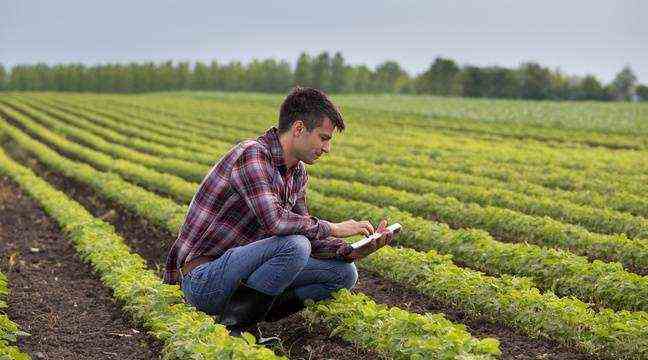European Agriculture Ministers, meeting in Brussels, gave the green light on Monday to an “action plan” aimed at devoting at least 25% of EU agricultural land to organic farming. by 2030, compared to 8.5% currently.
“This is a comprehensive approach: the main objective is to devote 25% of the land to organic. But we must also promote organic food, develop the organic food processing industry, expand markets, ”European Commissioner for Agriculture Janusz Wojciechowski explained at a press conference.
A “national strategic plan” for each state
According to him, the Member States were unanimous in supporting the non-binding orientation proposed by the European Commission as part of its “From farm to fork” strategy intended to improve food circuits, in particular by strengthening the share of organic agriculture, more respectful of biodiversity. “I am delighted because previously there was controversy over whether or not this 25% target was realistic. From now on, states have the will to help make it a reality, ”the Polish commissioner remarked.
In practice, each government will have to adapt its “national strategic plan”, ie the way in which it intends to allocate funds for the Common Agricultural Policy (CAP). The reform of the CAP, recently approved by the Twenty-Seven, provides for a system of “eco-regimes”, bonuses rewarding farmers who comply with environmental criteria defined at State level (conversion to organic, but also reduced use of water, fallow land). , hedges …). “States are encouraged to include organic in eco-diets (to make it a major criterion for obtaining premiums). The question is how ambitious they will be, ”noted Janusz Wojciechowski.
Sales of organic products have doubled
The adopted plan also proposes to strengthen the rural development funds of the CAP in favor of organic crops, as well as the “technical assistance” mechanisms for farmers. It plans to actively promote the marketing of organic products, identified by an EU logo, by strengthening their presence in canteens and integrating them into public markets, while improving traceability to better combat fraud.
Sales of organic products on the continent have more than doubled in ten years: each European consumer spends around 84 euros annually, according to the Commission. Environmental NGOs remain cautious, deeming the 25% objective too unambitious, and fearing that beyond organic, the criteria conditioning “eco-diets” are not sufficiently strict to develop “sustainable” practices in agriculture. conventional.

